3 Volumes
Constitutional Era
American history between the Revolution and the approach of the Civil War, was dominated by the Constitutional Convention in Philadelphia in 1787. Background rumbling was from the French Revolution. The War of 1812 was merely an embarrassment.
Philadephia: America's Capital, 1774-1800
The Continental Congress met in Philadelphia from 1774 to 1788. Next, the new republic had its capital here from 1790 to 1800. Thoroughly Quaker Philadelphia was in the center of the founding twenty-five years when, and where, the enduring political institutions of America emerged.
Four Constitutions
Multi-national unions of republics are uncommon, usually brief and seldom voluntary. America has had three of them, but we only got it right the second time. Uncertain why we succeeded when many others failed, we remain skeptical of changing the rules. The Europeans, on the other hand, are uncertain whether they want to follow the Confederate States of America toward extinction, or the United States of America toward world domination. When deeply considered, it is a hard choice.
...Pending and Later Amendments
New topic 2012-08-01 19:06:55 description
Constitutional Liberty
WITH British troops in the process of disembarking at New Brunswick, apparently intent on hanging rebels, Robert Morris and John Dickinson annoyed everybody by refusing to sign the Declaration of Independence. Both were fully engaged in the Revolution after the fighting finally got started, and Morris signed up in August 1776. Dickinson had some further reasons of his own, but Morris explained his position quite succinctly. He didn't mind being a British subject, he didn't want a new King, what he wanted was Constitutional Liberty. There is no record of his being directly confronted about this later, and thus no detailed explanation. But whatever did he mean?
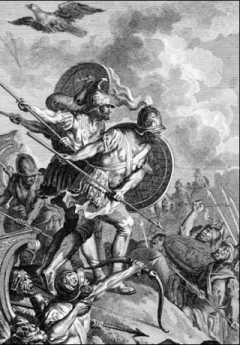
|
| Iliad and the Odyssey |
Morris was of course very bright, even brilliant as a businessman. He had an astonishing memory for detail and was capable of holding his own counsel. He was a person of great daring and prodigious amounts of work. But there is very little evidence that he thought it was useful to be mysterious, or deep. So why not take him at his word, which was essentially that what mattered in a government was whether it kept its promises and allowed its citizens all possible Liberty. It did not matter whether the government had a king, or seldom mattered much who that king was. What mattered was whether it kept its promises, and for that a Constitution is useful. There is no great pleasure in being capricious and arbitrary, so a king who leaves the citizens alone is mostly the best you can ask for. It does, however, help considerably if the rules are fair, clear, and binding. Beyond that, it is unwise to go about toppling governments in the vain hope that a new one is somehow better than the old one. This is putting words into his mouth, to be sure. What he did say was he saw no advantage to getting a new government when what we wanted was Constitutional Liberty. Eleven years later, he was a personal friend of just about everyone with the power to design a new government. Washington lived in his house, or in one next door. Ben Franklin was a business partner. Gouverneur Morris was his lawyer and partner. Just about everybody else who mattered was meeting with him in secrecy for months at a time, in the Pennsylvania Statehouse. And so on.
An essential part of this puzzle of Morris' role could be that the American Constitution was very close to unique in being written out as a document, like a commercial contract. The British Constitution was unwritten at the time and continues to be unwritten today. Many other members of the British Commonwealth operate without a written constitution. And in fact, what passed as constitutions for thousands of years have been unwritten; it was the written American one which was the novelty, not the other way around. It may stretch matters a little to describe the Iliad and the Odyssey as constitutions, but they do in fact describe the system of governance of the Ancient Greeks, clarifying many axioms of their culture for which they were willing to fight and die. We are able to understand the rules for Greeks to live by from reading Homer, almost surely better than we understand the rules of American culture by reading The Federalist Papers. Modern students of geometry, for another example, are taught that all the rules of Euclidian geometry are based on a few axioms stated at its beginning. Change one of those axioms, and you make mathematics unrecognizable. Even Newton's Principia are now seen by mathematicians to be rules which apply only to our universe for certain. There may exist many other universes to which they do not apply. Axioms are themselves mostly regarded as unprovable assumptions. A Constitution, therefore, is regarded in modern times to be much the same thing as a set of mathematical axioms. With one new exception: they are written out on a piece of paper for all to see and agree to -- just like a commercial contract. It would not be surprising to discover that America's great merchant trader, Robert Morris, was horrified at the idea of depending on Vestal Virgins or Judges, or Kings, for their recollection of what the contract says. It, therefore, seems quite natural for a maritime merchant to be agitated by having the rules of British society depend on what King George III chose to emphasize or ignore. Write it down, negotiate it, then tell us what you want so we can agree to it; that's a proper way to define Constitutional Liberty and limit disputes. International maritime trade could not be conducted in any other way, because sea captains who feel abused in a foreign port can abruptly up-anchor and sail away, never to return to that port again until or unless local rules are clarified.
Unless someone discovers some relevant documents in a trunk in the attic, that's about the best conjecture to be made about the American novelty of a written constitution, and its transformative effect on the legal system of all other nations which have one. It would still be nice to know, for certain, whose idea it was.
An Industrial Nation, or a Plantation Society?
There is a phrase much used in diplomacy and politics, sometimes attributed to Lord Palmerston, sometimes to Cicero.
In politics, there are no permanent friends, no permanent enemies, only accommodations.
Regardless of who coined the adage, it is difficult to imagine either stone-faced George Washington listening with any approval, or politician James Madison displaying the least surprise. The only American scholar of politics and political history available to Washington, Madison eventually evolved into a total politician. The evolution in the underlying core beliefs of these two men, in opposite directions, seems to explain the slow transformation of their Virginia plantation friendship into outright hostility. On one level, their disagreements may be seen as responses to their new roles: Washington created and molded the executive department, and while he helped him do it, Madison himself migrated into the role of leader of Congress. Once there, he was not strong enough to escape the collective power of Congress to mold its leaders into servants, a situation that was not corrected until Henry Clay over-corrected it in the opposite direction. On another level, it is possible to view the two Virginians as having different reactions to the oncoming Industrial Revolution.
Although both were Virginia plantation owners, General Washington's wartime experience was that his own solitary opinion, right or wrong, would ultimately be all that mattered. All that advice he got was simply information-gathering. On the other hand, while the leader of the legislative branch was often able to change legislative opinion, he would be ultimately forced to accept the collective opinion of Congress or resign his leadership of it. That was also true of the Chief Executive Officer, but several steps removed from Congressional decisions, and of the opinion, he must finally accept their final wishes if they seemed to represent the will of the people who voted them into office. Of the two, he was better able to understand what Hamilton was talking about, better able to appreciate that the strength of a nation has an economic base as well as a military one. The mythology of the era has Alexander Hamilton in combat with James Madison, with Washington in the middle but eventually siding with Hamilton. That's true enough, but the greater truth is that these individuals were cast as the symbols of the changing beliefs of the country. It must be conjectured the high adventure of creating a new form of government held the three together, even as many things turned out to be unanticipated. Washington seems more dismayed by gradually perceiving some unwelcome imperatives of the Constitution, while Madison simply set about to make the most of them. Washington believed in character, a personality based on steadfastness, courage, and determination. Adaptability, yes, pliability, no.
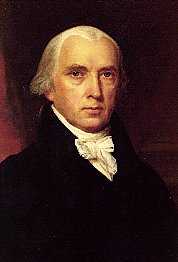
|
| James Madison |
The official organizing principle of every legislature, Congress, or parliament is that each member has one vote and therefore is the equal of every other member. Washington understood leaders would emerge, able to persuade others. What he did not anticipate was that some would scheme to acquire the power to compel obedience. Unofficial ways to acquire power over colleagues differ among legislatures but have certain recurring features.
 Vote-swapping. 
|
The press of business usually requires a division of labor into committees, who soon acquire special expertise. A chairman is selected to handle routine matters, and to negotiate compromises with overlapping committees; the chairman acquires power. Members differ in their degree of interest in almost any topic; those who have little interest in a particular outcome have an opportunity to trade their vote for assistance on some other matter of much greater concern to them; why not? From this evolves the strategy of striving to discover what each voter secretly wants most of all; offering assistance on that favorite topic is the first step in enlisting later support on some other issue. If he wants your help badly enough, he may even vote against something else he really favors. If he wants to be chairman of a committee important to his interest, it may even be possible to force him to vote for something he privately hates. Vote-swapping is the fundamental currency of legislative trading, and it is sometimes a loathsome business. But just try to imagine George Washington swapping votes to become chairman of a committee, or to enact an appropriation; it couldn't happen.
One suspects it did happen, at least once. Washington badly wanted the nation's capital to be across the Potomac River from his plantation. Indeed, he wanted the Potomac River to be the main commercial highway of the nation to the Great Lakes and the Mississippi. He never said he wanted the nation's capital to be named after him, but he did not object a great deal, either. When there was quibbling about the location of the White House, the old surveyor went there himself and laid it out with a surveyor's transit. Washington wanted Virginia to be the biggest most important state in the union; four of the first five presidents were Virginians. And so, when Hamilton and Jefferson negotiated the Compromise of 1790, everyone knew what Washington's feelings were. The revolutionary debts of Virginia became federal debts, in return for relocating the capital from the banks of Delaware to the banks of the Potomac. Robert Morris was fit to be tied. Washington stood aloof and uninvolved. Anyone who has ever been involved in one of these compromises knows that some participants see nothing wrong with it, while others hate themselves forever, for having had anything to do with it. In fact, the legislators most offended by vote-swapping are the ones who once somehow got unwillingly dragged into it, and never entirely forgave themselves. Natural politicians like Madison, however, are irked by those who criticize such a natural and effective process, whose successes are everywhere to be listed. While no one can read the minds of these two founding fathers, there seems little doubt they were on different sides of this enduring division in the personality types of people in public office and therefore headed for a collision whenever a sufficiently major issue arose.
 The genius of the evolving American form of government was to leave land ownership in private hands while creating a new power center in banking and finance. 
|
The issue was major, all right. It was the question of whether this proud new nation was going to join the Industrial Revolution, with all its smoke and crowding, greed and striving. Or whether it was going to sweep majestically along with the romantic movement of the day, the happy farmer and the noble savage, spreading out on a bountiful endless continent. To some extent, this was an echo of the French Revolution which so enthralled Madison's best friend Thomas Jefferson, drawing the conflict between England and France into our own rather recent revolution. Great Britain was a century ahead of France in the Industrial Revolution, which originated north of Manchester where William Penn's Quakers came from. Yes, factories were sort of polluting and crowded, certainly enough to get Marx and Engels excited. But there was another undeniable truth: England soon got richer, acquired a world empire, had a bigger navy, and was soon to beat Napoleon at Waterloo. It was rather easy to prove to George Washington that an economically stronger nation was likely to be militarily stronger as well. Eventually, the point would even be forcibly brought home to Robert E. Lee. American tourists in Europe today echo the sentiment when they chose a vacation itinerary: no churches, and no museums, please. But to be fair to the Virginians, the point was not at all obvious in 1790. Virginia owned what are now three states, and held significant claims to what is now five more. Why would Virginians have any interest in dirty factories or the grubby strivings of immigrant merchants?
Still another historical curiosity emerges from the twenty-five years of Philadelphia as the new nation's capital, which is really our national epic poem, waiting for its Homer to compose it. Just about everybody at the Convention agreed the national government had to be strengthened; the state legislatures were going to ruin us. Madison, representing the views of the landowner aristocracy, was also afraid the national government could get too strong and ruin them by disturbing private property ownership. Hamilton didn't care about the land, he cared about money; he wouldn't mind a King if one was necessary to get things done. It should be remembered that feudalism was largely based on the king's right to reassign land ownership in return for military support. The genius of the evolving American form of government was to leave land ownership in private hands while creating a new power center in banking and finance. So it eventually evolved that Madison and his friends from Appalachia wanted to limit the powers of the national government strictly to those few areas where we needed it strong; enumerated powers were the result. The Federalists following Hamilton stretched enumerated power as far as it would reach with extra "implied" powers, together with their "emanations and penumbras". If you were to defend the nation, you needed a navy; eventually, it would be implied you needed an air force, maybe atom bombs. Increasing Federalism was the driving force of the Republican Party down to the time of Franklin Roosevelt, indeed down to the moment when the Philadelphian Owen Roberts tipped the Supreme Court majority in favor of eliminating "the commerce clause". Since that time, the Republican descendants of Alexander Hamilton have sought to shrink and restrain federal powers and bureaucracy, while the political descendants of James Madison have sought to populate Virginia with civil servants up to and beyond Piedmont. Both Madison and Hamilton must be turning in the grave about the way this topic evolved. But the power being struggled for is all commercial power; ownership control of land remains off the political table. Perhaps the day will come when fresh land no longer seems unlimited, making monopoly control of it seem more threatening. More likely, the agricultural economy will nearly vanish, taking its power struggles along with it. The paradox emerges that increased productivity will likely shrivel the importance of manufacturing as well, leaving both farm and factory as relics of the past. The test of a constitution is how well it adapts to an unknown future.
Sources of Revolutionary Populism
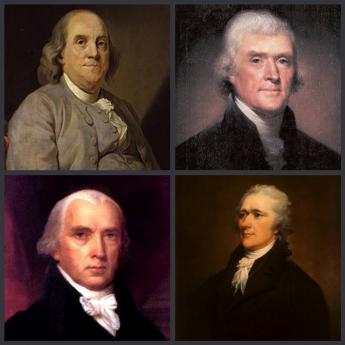
|
| Founding Fathers |
Those who now look back at the Founding Fathers often fail to account for the aging process during the eleven years between the Declaration of Independence in 1776 to the Constitutional Convention of 1787. The two events took place in the same building, Independence Hall, and many participants of the Convention were fellow Revolutionary War veterans. But there was originally a great social difference between a colonial leader and a teen-aged soldier at the beginning of this period, which tended to seem blurred by the experiences of the war. Someone who fought and was wounded as a common soldier might later grow into the dignity of a former war hero, but underneath this veneer was a very different experience from an early leader of the colonial rebellion, or after the onset of serious hostilities, an older man who seemed eligible to be a Revolutionary officer. The original generation of rebels conspired to restore proper British rights for individual colonies, while the teenager who fought in the Continental Army under his idol George Washington saw himself as fighting for the freedoms of individuals, living in a new nation.
What emerged were two generations of Founding Fathers, one of which was generally an officer fighting for the right of his state to be fairly represented, the other a young common soldier, fighting for the individual right of free speech. One wanted to protect his colonial region's religion, the other wanted the freedom to choose his own religion. Both of them felt entitled to say how things were to be run, but young men eventually become older men. No better example of aging's transformation of attitudes could be found than the life of John Marshall. This teenaged wounded veteran of the Battle of Trenton evolved into Chief Justice of the Supreme Court, the author of a multi-volume biography of George Washington, and almost the last man standing who could be called a Federalist. Other teenaged soldiers took different paths in life.
History belongs to the victor, so it is also important to recollect that almost a third of the colonists had been Tories. In general, the upper crust of society tended to be more loyalist. Thousands of Loyalists fled to Canada, and thousands more fought on the British side. When General Clinton abandoned the occupation of Philadelphia, three thousand Loyalists accompanied him. The loss of these more educated and wealthier citizens and the lowered public profiles of those who remained in America skimmed off a considerable portion of the natural leadership of the colonies. Those young men who were left behind were victors, often exhilarated to discover that if they did not lead, no one would lead.
The embodiment of these population shifts was to be found in state governments with unicameral legislatures, popular election of judges, and weak executives -- all of which have since been repudiated by experience, but all of which reflect a distrust of leaders. Partly this might be attributed to lack of experience, greater reliance on collective government by the herd instinct, the recklessness of youth, and fear that power will eventually return to the hands of those who are educated to handle it. The hostility of the lower classes to those who are better off has many causes, but in this situation, it was promoted by unexpected elevation to leadership, combined with a subsequent determination not to lose power again -- balanced against the rather strong possibility that they would. Add to this the continued influx of immigrants fleeing from foreign oppression, and it is not surprising that the result is an enduring strain of populism stirring up a latent tendency to class warfare. You, too, can be President; but you must fight if you expect to succeed. The former aristocratic attitude was that you are born to rule, as long as you don't do something stupid.
REFERENCES
| The Great Courses: History of the United States, 2nd Edition Course #8500: Lecture 14 Creating the Constitution: Aurthor: Allen C. Guelzo: ISBN: 156585763-1 | The Great Courses |
Selection of Constitutional Rights for the Bill of Rights
When the First Congress convened in 1789, it confronted more than a hundred proposed amendments to the Constitution, largely stirred up by supporters of Thomas Jefferson who feared any strong government would be too similar to the monarchy we had just discarded. Essentially, Congress dumped these noisy dissatisfactions into the lap of James Madison who had largely constructed the Constitution, constituting a committee with Madison as its chairman. The first ten amendments emerged together as a package, enabling trade-offs and compromises; all subsequent amendments have been taken up individually, one by one. Since members of the First Congress and the Constitutional Convention were largely the same people, much of the durability of the Constitution can be traced to them. And therefore, the tendency of the nation to feel its way into a new idea, sometimes retreating, sometimes plunging ahead, has migrated into the Supreme Court. This result was probably accidental, but nevertheless, the power of the Supreme Court was greatly strengthened by default; it alone can tip-toe out of a Constitutional tangle created by momentary impulses.
After winnowing out duplicates and half-baked ideas, Madison's committee condensed the wildly disparate proposals into ten amendments, supposedly limited to ten by alluding to Ten Commandments which were sufficient for Moses. Three main principles emerged. The Constitution should be parsimonious in granting divine, or natural, rights because what Nature's God had granted was hard to tell but what the judiciary could enforce had limits. But thirdly, granting even these few self-evident rights to slaves might tear the Union apart.

|
| James Madison |
So Madison's committee narrowed the legally enforceable human rights to a handful, selecting only those so self-evident they could withstand the tensions of enforcing them. When contemplating the problem of extending mandated rights to slaves, however, there was no obvious solution at all. That made it easier to limit the Federal Government to enforce a handful of enumerated powers, leaving all unspecified matters to the state legislatures to enforce if they could. The boundary might shift with time, but without saying so, the Bill of Rights kept the Union out of the one main foreseeable problem, of slavery. The unmentioned conflict between universal rights and slavery defaulted to the individual states, or to whomever, but definitely not to the Federal Government.
That tap-dance held together for nearly a century, and then it didn't and we had a Civil War. During all that time, the balance of power was steadily shifting from the confederated states to the centralized federal government, and after the Civil War, it shifted still more. However, the southern confederation may have been defeated, but it was not exactly reconciled, nor were the former slaves exactly equalized. Their current drift toward entitled dependency was particularly unexpected.
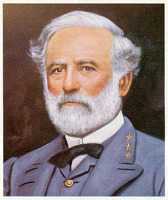
|
| Robert E. Lee |
Many post-war expedients were tested to heal these wounds, some of them useful and some, like forcible Reconstruction, disruptive. Two expedients opened new wounds and distracted the country for a century. The first was the intentional weakening of the quality and effectiveness of state governments, to the point where it can now be asserted that state government is the weakest part of our whole government structure. Those who prized universality and efficiency, or who sought greater international power, regarded state legislatures as a hindrance; just look who got us into a Civil War. Consequently, corruption and ineffectiveness were privately tolerated in state legislatures, because discrediting state governments made them easier to ignore. Repairing the resulting imbalance in our overall system is now growing to be one of our greatest problems. Almost no one remembers this was the price of a ratified Constitution, so increasingly that excuse is futile. In fact, in the thirty-seven more recent states to be admitted to the Union, it is not even accurate.
The second response to a sluggish equalization of racial rights was invented by Madison himself. He felt that the ability to migrate from one state to another would discipline any temptation of a state to misbehave. If your state taxes you unfairly, move. If your state government gets too corrupt, first try to throw the rascals out, but in the last extremity, go somewhere else. This concept has worked magnificently in maintaining national interest rates with appropriate local modifications, and we are about to learn whether it will adequately restrain the half dozen states who have pushed the limits of taxes and borrowing. In the case of former slaves, massive out-migration took a century to happen and then it happened all at once, just after World War II. Wave after wave of slave descendants from the rural South got on buses and came to the heart of Northern cities. Overwhelming the ability of weakened local governments to cope, city institutions disintegrated, particularly the public school and justice systems. The consequence is continuing disarray in Washington DC, Baltimore, Detroit -- and Philadelphia -- together with a host of smaller cities like Reading, Newark, Paterson, Wilkes-Barre, and many others, in all of which the unsustainable wave of immigrants added to local industrial and civic problems which had other causes. So now we have two new problems, weakened state government and disruptive migrations, which in other circumstances tended to mitigate each other, but now increasingly make each other worse. Someone must take hold of the issue that applying Madison's concept of competitive states has created a strong state disincentive to deal with poverty.
It took a century for Madison's scheme to break down into war, and Lyndon Johnson was surely quite right to feel a century was long enough to tolerate the disunity of the Civil War. If he could not make people love one another, at least he could enforce the law. State governments were not doing it, so he whipped the Congress into taking it on as a Federal duty, by passing the Civil Rights Act. Half a century has passed with some progress, but surely not an end to the disunity. State governments have been further weakened, but mass migrations have calmed down. In another half century, the slavery issue and its consequences may fully subside. Meanwhile, the reaction of extending federal power continues, now threatening to extend to the medical profession, the finance industry, the automobile industry, and the Internet. Our Constitution continues to survive more or less intact into its third century, and we grow increasingly wary of tinkering with it as we watch most other nations fail to achieve its essential quality. Which is, it survives. Aside from the Bill of Rights and some technical tweaks, there have only been five amendments of any substance. Meanwhile, new federal statutes and regulations grow by a hundred ponderous volumes a year.
Human Rights

|
| AMA Logo |
ABOUT ten years ago, I first encountered the use of the term "Human Rights". Seated as a member of the House of Delegates of the American Medical Association, I was distracted when a late resolution was passed around for urgent consideration. Such resolutions require a supermajority to be introduced as a business of the House, either two thirds, or three-quarters of the attendees, and a little speech by the author explaining the "reason for lateness". The resolution was a one-line request for endorsement of the concept of Human Rights by the American Medical Association. The stammering explanation for lateness (as distinguished from holding it over to the next meeting) was that it was self-evident that the Association would favor human rights and immediately place it on the "Consent Calendar" for approval without voting on it. Like everyone else in the room, I looked to my seatmate neighbor to ask what this was all about. No one knew, so the author was asked to explain. Well, it was about human rights, not animal rights or corporate rights, and was otherwise so self-evident it needed no further explanation. Just what was in the mind of others seated in that room I cannot say, but to me, the resolution seemed like nonsense, whose author seemed very innocent and naive. In any event, the resolution was dismissed, the paper discarded, and we went on to the medical issues we were there to discuss.
.jpg)
|
| Bill of Rights |
In fact, the whole concept of prosecution for human rights violation is too vague to be useful. When individuals commit outrageous crimes, the matter can normally be handled under the criminal code, with the offense defined and appropriate punishment described in advance. Murder and torture are not commonly affected by whether or not rights have been violated. On the other hand, offenses by component national states are usually regarded as acts of war; if Ghengis Kahn were accidentally admitted to the EU, the punishment would start with expulsion from the Union, and surely go on to war, essentially the same outcome. A nation which was able to deal with the Iroquois and the Comanche tribes surely has no nightmares about Nebraska electing Pol Pot as governor. The human rights advocates have simply got to make a more plausible case for revolutions in our criminal justice system, if they are to be taken seriously.
Eleventh Amendment
There are certainly a lot of Ingersolls in Philadelphia. A lot of Jared Ingersolls, a lot of Charles Ingersolls, and even a lot of Charles Jared Ingersolls. At a dinner party, a lady whose maiden name is Ingersoll was asked about Charles Ingersoll, and was forced to say, "Just how old would you say he is?"
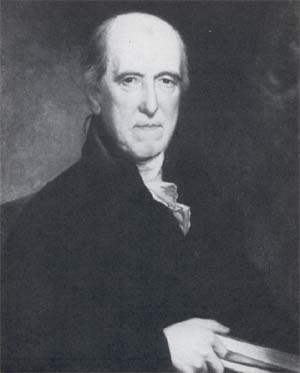
|
| Jared Ingersoll, Jr., |
The one we are talking about here is Jared Ingersoll, Jr., the son of a Tory who had once been tarred and feathered by Revolutionaries in New Haven. Young Jared was in England at the Inns of Court when the Declaration was signed, became a fervent Revolutionary, and represented Pennsylvania at the Constitutional Convention. It was thus difficult to predict where his sympathies would lie in the settling of debts and grievances associated with the Revolutionary War; in fact, he might be as impartial as any lawyer to be found at the time. At their best, all lawyers reach for the peaceful settlement of grievances, serving their clients best by finding a solution that puts an end to reprisals. Furthermore, he had excellent legal training, something which could not be said of most apprentice-trained lawyers of that time, and had faithfully attended every single session of the Continental Congress, while commenting very little about his own views. The first ten amendments are the Bill of Rights which had been promised during the ratification process, so the Eleventh became the first real amendment, in the sense that it specifically reverses some feature of the original design. To present observers it may not be easy to surmise just what the purpose might have been to outlaw the method which had been established for an injured citizen to sue a state. To be blunt about this point, the colonists wanted to welch on paying debts to Loyalists and Englishmen, those hated enemies, without admitting this was their motive. The spin they put on this shabby attitude was that states were now sovereign entities without a king, and since historically a British king could not be sued without his consent, therefore neither could the states. Probably the best that can be said for this cloud of words is the point that suing the government should not be made too easy, for fear of overwhelming the court system with endless clamor. The historical episode surrounding the Eleventh Amendment is an important one in our national struggle to balance the accusations of hypocrisy and chiseling, with the opposite tendency of slavish adherence to procedure, or "due process".
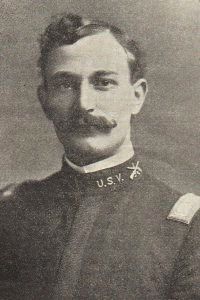
|
| Alexander Chisholm |
Ingersoll had attended the Constitutional Convention as part of the most influential state delegation of insiders and was set up to practice law in the capital city of Philadelphia just a few blocks from the heart of government. A case came up. The estate of Captain Robert Farquhar, an Englishman, was owed $169,613.33 for "goods" sold in 1777 to agents of the embattled State of Georgia during the Revolution. The executor of Farquhar's estate, a resident of South Carolina named Alexander Chisholm, then sued the state of Georgia after the war was over for that state's extinguishing the debt by a statute passed after the contract. This had been the rather common treatment of Loyalist debts by other colonies and thus enlisted their sympathies to Georgia in this case. Furthermore, it was the sort of uncivil behavior that had enraged John Jay and George Washington, leading them to press for the Constitutional Convention. On the other hand, the new state governments were hard-pressed for cash and had to contend with highly combative citizens who resented even the suggestion that they play fair with people who had so recently been trying to kill them. Furthermore, it was entirely realistic for them to fear a flood of lawsuits from people they mercilessly pursued under what "everyone" considered the rebellion's accepted rules of engagement. It was thus clever for Georgia to seek the help of Ingersoll in appealing to the Supreme Court, and the previous tarring and feathering of his Loyalist father was not entirely irrelevant. Ingersoll, unfortunately, lost his case of Chisholm v Georgia when the Supreme Court (John Jay, CJ) declared that Chisholm was indeed entitled to sue the State of Georgia. It is hard to see how Ingersoll (and his colleague Alexander Dallas) could have won this case when the Constitution which he helped write plainly provided the rules for citizens of one state suing another state; it seems remotely possible that the officials of Georgia were attempting to shift the blame of an inevitable loss of the suit:
Article III - Section 2 -The judicial Power shall extend to all Cases, in Law and Equity, arising under this Constitution, the Laws of the United States, and Treaties made, or which shall be made, under their Authority; to all Cases affecting Ambassadors, other public Ministers and Consuls; to all Cases of admiralty and maritime Jurisdiction; to Controversies to which the United States shall be a Party; to Controversies between two or more States; between a State and Citizens of another State; between Citizens of different States; between Citizens of the same State claiming Lands under Grants of different States, and between a State, or the Citizens thereof, and foreign States, Citizens or Subjects.
John Jay ultimately revealed the depth of his dismay at dishonoring debts when he negotiated Jay's Treaty during the Adams administration, providing for adjustment of such debts. Adams, in turn, was to reveal where his own sympathies lay by refusing to announce -- for three years -- the reversal of this position by the Eleventh Amendment, stirred up in his own state. Adams' rather flagrant abuse of a technicality might well have led to another constitutional amendment, except for the Supreme Court later ruling that official enactment of amendments did not require Presidential announcement, but took effect upon ratification by the required number of states.
Adams, in turn, had ample political problems in his home state of Massachusetts. John Hancock, then Governor, called a special session of the Massachusetts legislature to propose an amendment to reverse the Constitutional language on which the Supreme Court's decision had relied: It soon became clear, or perhaps Ingersoll was determined to make it seem clear, that Georgia had been smart to employ this political insider. Congress soon enacted, and the necessary states soon ratified the Eleventh Amendment. It stated that a citizen of another state may not sue a State government in Federal Court:
Amendment XI. The Judicial power of the United States shall not be construed to extend to any suit in law or equity, commenced or prosecuted against one of the United States by Citizens of another State, or by Citizens or Subjects of any Foreign State.
Later decisions included citizens of the same state, so in effect, this amendment stated that no one may sue a State Government unless the state agrees to be sued. That's essentially what is true of the federal government; the states were given the same sovereignty with all of its features, as the federal government and that was an intentional slap in the Federalist faces.
It sounds as though Jared Ingersoll might have been a states-righter, although nothing in his past or future behavior suggests that he was anything but an ardent Federalist. He was even proposed as vice presidential candidate for the Federalist Party. No one called him wishy-washy, or a traitor or a covert anti-federalist, and he never acted like one. He was just a lawyer with a client.
Seventeenth Amendment

|
| Seventeenth Amendment |
The Seventeenth Amendment of the Constitution provides for the direct election of U.S. Senators; prior to that, the states could decide for themselves how to select their Senators. The Amendment was proposed in 1912 and ratified in 1913. Today, most people have no opinion whether the Amendment was good or bad, necessary or unnecessary. The Progressives of 1912 professed to be shocked, shocked, that wheeling and dealing went on in the state legislatures every time there was a vacancy in the Senate. Indeed, few contestants on TV quiz shows would be able to tell you what the Amendment was about. It would be hard to find a person who would, without further study, be opposed to a reaffirmation of "The Senate of the United States" shall be composed of two Senators from each State, elected by the people thereof, for six years; and such Senators shall have one vote. The electors in each State shall have the qualifications requisite for electors of the most numerous branch of the State legislatures."
If you search for reasons -- why in the world would there be a fuss about this topic, 125 years after the "Constitutional Convention -- several plausible reasons are stated, all of them amounting to legislature incompetence. Such as deadlocks resulting in vacancies remaining unfilled, influence by corrupt political organizations and special interests through the purchase of legislature seats, and neglect of duties by legislators because of politics. Even though news of these matters has failed to persist in the national recollection, they seem plausible enough; it sounds like local politics, all right. But the plausibility was there in 1787, too, and surely the founding fathers expected something like that when they let the States select their Senators as they pleased. The whole idea surely was to give the states additional reassurance that they could block any further transfer of state power to the federal government; direct election of senators clearly reduced the power of state governments in the federal/state struggle. Mostly, of course, by the State Legislators selecting one of their own members to go to Washington.
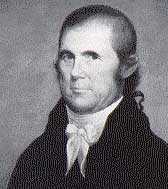
|
| John Marshall |
We have here a tilting of our governance from a Republic toward a Democracy, following the philosophy of John Marshall, of all people, that the behavior of all State legislatures everywhere will inevitably lead to mischief. Just a minute, please, let's give this a little thought. Surely the vast amounts of campaign money required to run for a Senate seat compare with the amount a special interest would have to spend to buy a majority in the Legislature of a State. As a practical matter, most special interests have lost interest in State politics and spend their money in Washington -- except for those few special interests that are exclusively State regulated. This comes down to the insurance and real estate industries, with insurance only there because of the McCarran Ferguson Act. This isn't only because of the Seventeenth Amendment, it also has to do with Franklin Roosevelt's Court-packing attempt, which is discussed elsewhere.
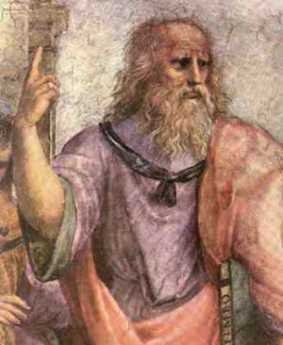
|
| " Plato" using Leonardo da Vinci as model. |
The idea of a Republic, originally set down by the Greek philosopher Plato, was that a small group of elite philosophers (you will have to forgive his professional biases) who meet together occasionally, would be better able to pick a member of their group for higher responsibilities, than would the populace. The inner circle would know who was an alcoholic, a phony, a pervert, a coward or a loafer, whereas these qualities can be concealed from mass audiences long enough to get elected. Such an in-group in a legislature may pick a bad person, or deliberately reject a good one, but they do it on purpose, not because they are fooled. The issue of direct election of Senators comes down to whether you think it is more likely that a legislature will be corrupt, or the voting population will be ignorant. Hard choice.
Meanwhile, election to the State legislature has been reduced to an inconsequential backwater, almost guaranteed to have an adverse effect on the members. There was a time when people who wanted to be U.S. Senator knew they must first run for the Legislature, where their skills could be tested and perfected. National affairs became State affairs, with legislators well aware that they could unseat a Senator whose national behavior displeased them. There are many States, Pennsylvania among them, who collectively pay far more federal taxes than they receive in federal benefits. Call it pork barrel if you like, the present degree of interstate wealth redistribution could not possibly continue at present levels if we repealed the XVII Amendment.
Freedom, But Not Independence
Minimum Wage Fangdoodle
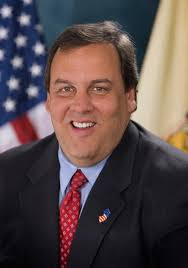
|
| Governor Chris Christie |
The November 2013 elections have been widely accepted to be a spectacular win for New Jersey Governor Chris Christie, suddenly making him a presidential front-runner for 2016. The only other significant election was a close win in the Virginia gubernatorial race for a fund-raising crony of Bill Clinton over the Attorney General who started the Supreme Court Case over Obamacare. In the view of the news media, there were only two elections in this off-year -- a landslide in New Jersey, and a dead heat in Virginia, for Governor.
Well, as a matter of fact, there was also an election in New Jersey for all of the members of the legislature, which means that I was running against the Democratic majority leader in the 6th Legislative District. I got 19,000 votes, but I needed more to win. At least in my family, it was a big event, particularly since no one else in New Jersey contributed a dime to my campaign, and while Governor Christie may have whispered a few encouraging words to me, there was no evidence of his assistance. But you can forget about that, too, because this election was really about the minimum wage.
The first inkling I got that something was up was receiving a sample ballot, three days before the election, where there was a referendum question about the minimum wage that no one had told me about, although it could scarcely have been a secret to get it on the ballot. And secondly, on election day there was scarcely any evidence of campaigning for Democrat candidates except for a few yard signs, but literally, dozens of campaign workers poured into the subway stations, handing out great volumes of campaign literature about the minimum wage. Even that went past me unnoticed, because who in the world would vote for a proposal which would increase unemployment during a severe recession? When I expressed the same sentiment to my Democratic friends, I was surprised to discover they all knew about it in advance. In retrospect, that was a fairly good indication that the Internet had selectively urged support of this proposition to the party faithful, but had not said one word in campaigning for it. It won endorsement by a heavy margin, as things soon turned out. What's worse, what had been endorsed by referendum had been to amend the constitution to this effect, automatically indexing it to the cost of living. It's going to be pretty hard to reverse that since all constitutions have been written to make it very hard to amend them.
p> In the week after the election, I notice that several other states have been considering raising the minimum wage. An article appeared on the editorial page of the New York Times arguing that research showed there was no evidence that raising the minimum wage caused unemployment, and a few days later, Paul Krugman had a learned column on the Times editorial page to the effect that smart people all knew there was no reason to expect unemployment from raising the minimum wage, and only the hopelessly ignorant rubes would imagine there was reason to think so. Having spent some time with editorial writers, it seemed pretty evident to me that there was a nationally coordinated effort to convert this into a truism, accepted so widely it would be futile to argue against it. When it is also possible to see the existence of a campaign to impose a maximum wage (and not merely in Switzerland, where it was defeated on a ballot), the trajectory of a rising minimum wage meeting a falling maximum wage easily led to conjectures that what was really afoot was a campaign to take wages out of the marketplace. Or was that really the goal?
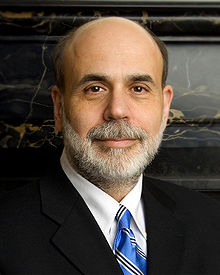
|
| Ben Bernanke |
For months, the Federal Reserve Chairman has been emphasizing that the Fed must obey two mandates: to maintain price stability and to minimize unemployment. Meanwhile, the dirty little secret among economists has been that unemployment is the main obstacle to inflation in the face of a massive enlargement of the money supply. Unemployment is currently at 7.1% and falling, while the Fed has lifted the veil of "transparency" to reveal it made a promise in double-speak to start selling some of the bonds it issued to combat the recession when unemployment reaches 6.5%. As time has gone on, Mr. Bernanke has seemed to back away from that promise. He is not so sure that unemployment is a good measure of unemployment, other measures may be a better measure of what we are driving at. He never meant to start selling bonds when unemployment reached 6.5%, he only meant that he might reduce the number he planned to buy. He never meant to make a promise, he only was being transparent about the current thinking of the Board. And anyway, Janet Yellen will take over his job in a month, so you can't very well bind your successor to do anything at all. What's this tap-dancing all about?
Well, it simply won't do, to suggest that the Federal Reserve isn't as independent of politics as it pretends to be. But everyone noticed that the stock market had a bad fainting spell when he suggested a few months ago that the Board had been discussing the matter; just imagine what it would do if he actually made a promise to act, let alone actually taking an action. By itself, such an announcement would probably send interest rates on a rise toward normal levels. The stock market mostly anticipates the future, so it would jump ahead of whatever action was taken. Since the United States is now the largest debtor on earth, a rise of interest rates would immediately add huge amounts to the current deficit and the projected national debt. The stock market would almost surely drop, possibly severely, in response to such commotion in the debt markets. And the national economy would certainly feel the deflationary effect of such activity in the financial markets, sending markets even lower. Fear of such a reaction would surely persist longer than the real need for monetary easing, making the resultant inflation even worse than it had to be.
 Is it possible the Obama Administration prefers a little extra unemployment, to risking a stock market crash before a coming election? 
|
| Minimum Wage Uproar |
In an era of desperate experimentation with the simultaneous solutions of several problems at once, perhaps the best conservative response to this paper is to seek ways to relax its inflexibility. The political process, particularly the amendment of state constitutions, is a lengthy and cumbersome impediment to agile management of the economy. It is fairly unlikely that a secret springing of a referendum trap can be repeated. The greater risk is that we will know what should be done, but become unable to do it quickly.
Meanwhile, the politicians are designing things and politicians like things simple. The Republican solution is to pass a minimum wage, but keep its benefit slightly below the entry-level wage; they get credit for passing it, but it has almost no applicability. The Democrat approach is to make a big noise about passing a meaningless bill, promising they will make it up with off the balance sheet entitlements, like health care and college tuition. Either way, usually nothing much happens after the election is over.
Appealing the Constitution to a Higher Authority
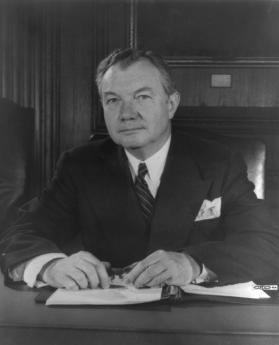
|
| Justice Robert H. Jackson |
According to Justice Robert H. Jackson, "We" (The Supreme Court) "are not final because we are infallible, we are infallible because we are final." Scoop Jackson was the last Justice who never went to college or graduated from Law School, so his viewpoint concentrated on the practical outcome of a situation. In fact, the father of our constitution, James Madison, was learned in the history of many constitutions, and was well aware of allusions to divinity in the construction of our governing document, particularly when the sources of strong beliefs couldn't be grounded in evidence. However,the Age of Enlightenment was highly religious, so they gave credit to divine guidance when they really were imitating the Legal profession.The lawyer's system of progressive appeal to a hgher court of appeals was a very clever adaptation of recognition that most problems are pretty simple andcan be handled without much training.The Constitution is an attempt to reconcile our culture to the needs of government and the revelations of controversy. Composed by Enlightenment rationalists within a highly religious environment, the Founding Fathers were careful to use the metaphors of Religion, even though many were personally skeptics about the substance. Indeed, the Penman of the Constitution who ultimately wrote most of the words was Gouverneur Morris, a flagrant libertine. It had been the tradition of Constitutions to describe their culture by allusion to epic poems, drawing inferences about Right and Wrong from what had subsequently happened to ancient heroes after similar situations unfolded. Some would put the plays of Shakspere in that role in 1787, but the evidence is stronger for Roman writers, like Cato and Cicero. In my own view, this leap of faith was only divine in the sense it was a one-way street. A citizen might try to emulate the ancients, but appealing back to them was not likely to work.
Although the Constitution can be viewed as bridging a gap between Culture and Common Law, or perhaps as placing a guardhouse between them, this relationship is not spelled out and therefore, in theory, might be changed. Other cultures, perhaps the native Indian, or the Catholic Church of Central Europe, might be substituted, or other legal structures resembling the Napoleonic Code might serve on the opposite side of the bridge. These substitutions were a legal possibility, but there is little doubt the American leadership intended for an Anglo-Saxon culture, linked with Francis Bacon's legal system, to prevail under a distinctively American flag. Because of our debt to France for then-recent assistance, there was once the possibility of French coloration to our culture, but the excesses of the French Revolution soon ruled that out. Some modern observers have capsulized the scene: First, we got the British to help throw out the French in 1754; and then in 1776, we got the French to help us throw the British out. Both our allies thought we played their game, but we were playing our own. The new Constitution specified no laws, but with little doubt the Framers intended the states to adopt British Common Law without the infelicity of saying so.
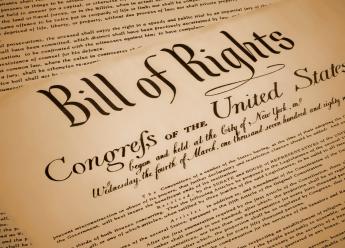
|
| Bill of Rights |
And then there is the Bill of Rights. Madison had great faith in the ability of structure (separation of powers, term limits, etc.) to command predictable outcomes, and initially resisted any need for a Bill of Rights. But the Ratification Conventions in the states showed him the need to yield. The First Congress soon enough confronted over a hundred proposed rights in petitions from the states, especially the four big ones. If anyone else had been in Madison's position, our Bill of Rights would resemble the European one today, fifty pages long and growing. That outcome would have greatly weakened the Legislative branch since after protests about Mother Nature subside, the legal fact emerges that Rights are merely laws which no majority can overturn. They might even be characterized as a contrivance for transient majorities to promote the permanence of their viewpoint.

|
| The Founding Fathers |
But they are not the only contrivance in politics. Enshrinement of the Founding Fathers elevated their political positions into near divinity, whereas debunking the Founders personally undermines their symbolism as statues and myths. There was too much of this during the romance period of the Nineteenth century, but also in von Ranke's later marginalization of History into mere scholarship and footnotes, which was a reaction to it. The Founding Fathers themselves now supplant Achilles and Cincinnatus in our lexicon, and we have little choice but to accord more weight to their original intent in the Constitution, than to contemporary reasonings. Indeed, we are forced to acknowledge more similarity between George Washington's fictitious cherry tree than to his relations with Peggy Fairfax, when we interpret his thundering "Honesty is the best policy" in the second inaugural address. It is admittedly a difficult choice, but Justices now need to consider what his audience widely believed was his original intent, more than what later archeological discoveries uncover. Justice Scalia is correct in placing more weight on the original intent of the Founding Fathers than contemporary reactions to the same words. But in occasional conflicts between myth and reality, it seems safer to consider what the audience then widely believed, than what modern audiences would guess at.
10 Blogs
Constitutional Liberty
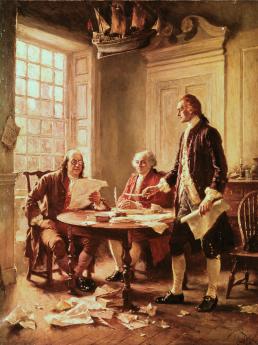 Robert Morris refused to sign the Declaration of Independence because what he really wanted was Constitutional Liberty. He didn't even mind being a British subject and didn't want a different King. What was this all about?
Robert Morris refused to sign the Declaration of Independence because what he really wanted was Constitutional Liberty. He didn't even mind being a British subject and didn't want a different King. What was this all about?
An Industrial Nation, or a Plantation Society?
 The founding of America produced patriots, heroes, revolutionaries and other idealists. James Madison was our first modern politician.
The founding of America produced patriots, heroes, revolutionaries and other idealists. James Madison was our first modern politician.
Sources of Revolutionary Populism
 A major source of growing populism among the aristocratic founding fathers was the aging of rebel boys into Revolutionary Veterans.
A major source of growing populism among the aristocratic founding fathers was the aging of rebel boys into Revolutionary Veterans.
Selection of Constitutional Rights for the Bill of Rights
 James Madison tried to preserve the Union by allowing states some latitude in enforcing civil rights. Eventually, we got a Civil War, a weakening of state legislatures, massive black migration to northern cities, and the Civil Rights Act. It's all about slavery is hard to eliminate.
James Madison tried to preserve the Union by allowing states some latitude in enforcing civil rights. Eventually, we got a Civil War, a weakening of state legislatures, massive black migration to northern cities, and the Civil Rights Act. It's all about slavery is hard to eliminate.
Human Rights
 Human Rights is a popular term, but not a very clear one.
Human Rights is a popular term, but not a very clear one.
Eleventh Amendment
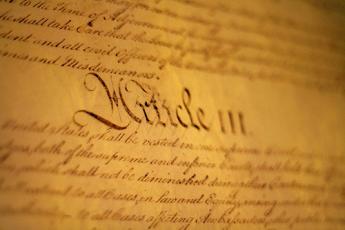 Since the Bill of Rights doesn't really count as corrections, the Eleventh Amendment is sort of the first attempt to change the Constitution. In retrospect, the purpose seems unclear.
Since the Bill of Rights doesn't really count as corrections, the Eleventh Amendment is sort of the first attempt to change the Constitution. In retrospect, the purpose seems unclear.
Seventeenth Amendment
 The consequences of this little-noticed amendment should be re-examined.
The consequences of this little-noticed amendment should be re-examined.
Freedom, But Not Independence
 Very likely, King Charles's advisors warned him of the possibility that colonies might drift away and even become enemies in time. Provisions about immigration policy and foreign relations needed some sort of review by the Crown.
Very likely, King Charles's advisors warned him of the possibility that colonies might drift away and even become enemies in time. Provisions about immigration policy and foreign relations needed some sort of review by the Crown.
Minimum Wage Fangdoodle
 While no one was looking, mandating a minimum wage turned into a contrivance to maintain low-interest rates.
While no one was looking, mandating a minimum wage turned into a contrivance to maintain low-interest rates.
Appealing the Constitution to a Higher Authority
 The original intent of the Constitution has as much to do with what the audience thought they heard, as what the Founders meant they were saying. Or possibly, what Gouverneur Morris thought they were saying.
The original intent of the Constitution has as much to do with what the audience thought they heard, as what the Founders meant they were saying. Or possibly, what Gouverneur Morris thought they were saying.